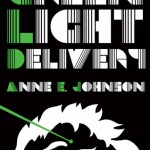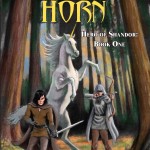by Gail Z. Martin
Many people will know you as the author of the Chronicles of the Necromancer series (beginning with THE SUMMONER) or the more recent Fallen Kings Cycle set in the same world. The new Ascendant Kingdoms Saga, beginning with ICE FORGED, is set in a wholly new world. What lies in store for readers?
ICE FORGED’s world is very different from the world of the Winter Kingdoms from my previous books. Magic works differently, there’s a completely different set of gods and goddesses, and the culture of the kingdom is very different. I’ve had some fun turning a few things upside-down from how they worked in my other books. In my previous books, they kept magic from failing. In ICE FORGED, magic does fail—and the results are catastrophic. My main character in the other series has a very powerful magical ability. Blaine McFadden has almost none. In my Chronicles series, my main character was an untested young man. In ICE FORGED, Blaine has seen the rough side of life before the story begins. All those changes were a lot of fun for me—and I hope they present a very different adventure for readers.
ICE FORGED interestingly seems to revolve around the concept of an apocalypse in a medieval-like setting. What was it that appealed to you about this idea?
I’m not really very interested in modern-day apocalyptic stories, but I liked the idea of having the world fall apart in a medieval setting—perhaps because in real life, things like the Black Plague really would have seemed like the end of the world for the people who survived. When the magic fails, their society is so dependent on it that it’s like us losing the power grid across an entire continent. I’m having a lot of fun wrecking havoc!
The main character in ICE FORGED Blaine McFadden is a rather troubled and complex character – a man condemned for murder, exiled to a penal colony, yet still a heroic figure of firm morals and principles. Did you find writing him a challenge?
Blaine kills the man who raped his sister—who happens to be their father. He expects to be executed for his crime, but the king (who was aware that Blaine’s father was a rat bastard, but a loyal rat bastard) exiles Blaine as an act of mercy. Blaine endures tremendous hardship in the prison colony and finally earns his Ticket of Leave which means he is a colonist (though without the ability to leave the colony) and builds a life for himself with close friends. He’s made his peace with being in exile, until war destroys the kingdom and the magic, and Blaine might be the only one who can put things right. I have really enjoyed writing Blaine because he’s a survivor. He accepts what comes his way without ducking, and he takes care of his own. He loses everything he has, and still emerges to make a life for himself. Although he’s got scars, he’s not bitter, but he is wary and so he’s got people who watch his back. He’s actually been a lot of fun to get to know!
ICE FORGED has a very gritty edge to it, and the concept of survival – of endurance in the face of adversity – seems to be a key theme. Do you feel that it’s important to give a message of hope in dark times?
I have very little patience with fiction, movies or people who wallow in despair. I like the proverb about “fall down seven times, get up eight.” In my own life, the people who inspire me are the ones who find a way to create something positive about even the most awful circumstances and who emerge as a beacon for others. I’m a fan of Churchill—“Never, never, never give up.” So for me, watching Blaine and his friends go through all that they’ve endured and come out with their sense of self intact, their ability to form bonds with others intact, and their ability to see a bigger picture beyond their own misfortune is very encouraging.
Magic seems to play a more important role in ICE FORGED than it does in your previous series, but interestingly, it seems to be treated as a kind of natural resource for the characters that’s taken for granted. Could you tell us a bit more about your inspiration for this?
In my last series, the plot focused on characters with powerful magic. With the exception of the magic strike (something of a doomsday weapon) that makes the magic fail, the real devastation happens with the small magics no longer work. These small magics helped people with their everyday lives and function much as our science, medicine and technology do. I liked the idea of doing the opposite of what I had done before, so I was looking for a different way to approach magic. I liked toying with the idea that magic is something that is constantly present but only a percentage of people have the ability to learn to use it. It’s not about studying spells, it’s about an inborn ability that you either have or you don’t. That becomes very important as the story goes on, because people who have magic have learned to rely on shortcuts. People without magic have to do things the hard way. When the magic fails, guess who is better positioned to survive?
We all think ICE FORGED would make a great movie. So the big question – if it gets made, who would you like it to star?
I think Richard Armitage, the guy who played Thorin Oakenshield in The Hobbit: An Unexpected Journey, could do a great job as Blaine! I picture Piran Rowse as a young Bruce Willis. Beyond that, I’ll leave it up to the casting agents.
Gail Z. Martin’s newest book, Ice Forged: Book One in the Ascendant Kingdoms Saga (Orbit Books), launched in January 2013. Gail is also the author of the Chronicles of the Necromancer series (Solaris Books) and The Fallen Kings Cycle (Orbit Books). For more about Gail’s books and short stories, visit www.AscendantKingdoms.com. Be sure to “like” Gail’s Winter Kingdoms Facebook page, follow her on Twitter @GailZMartin, and join her for frequent discussions on Goodreads.
Read an excerpt from Ice Forged here: https://a.pgtb.me/JvGzTt

















